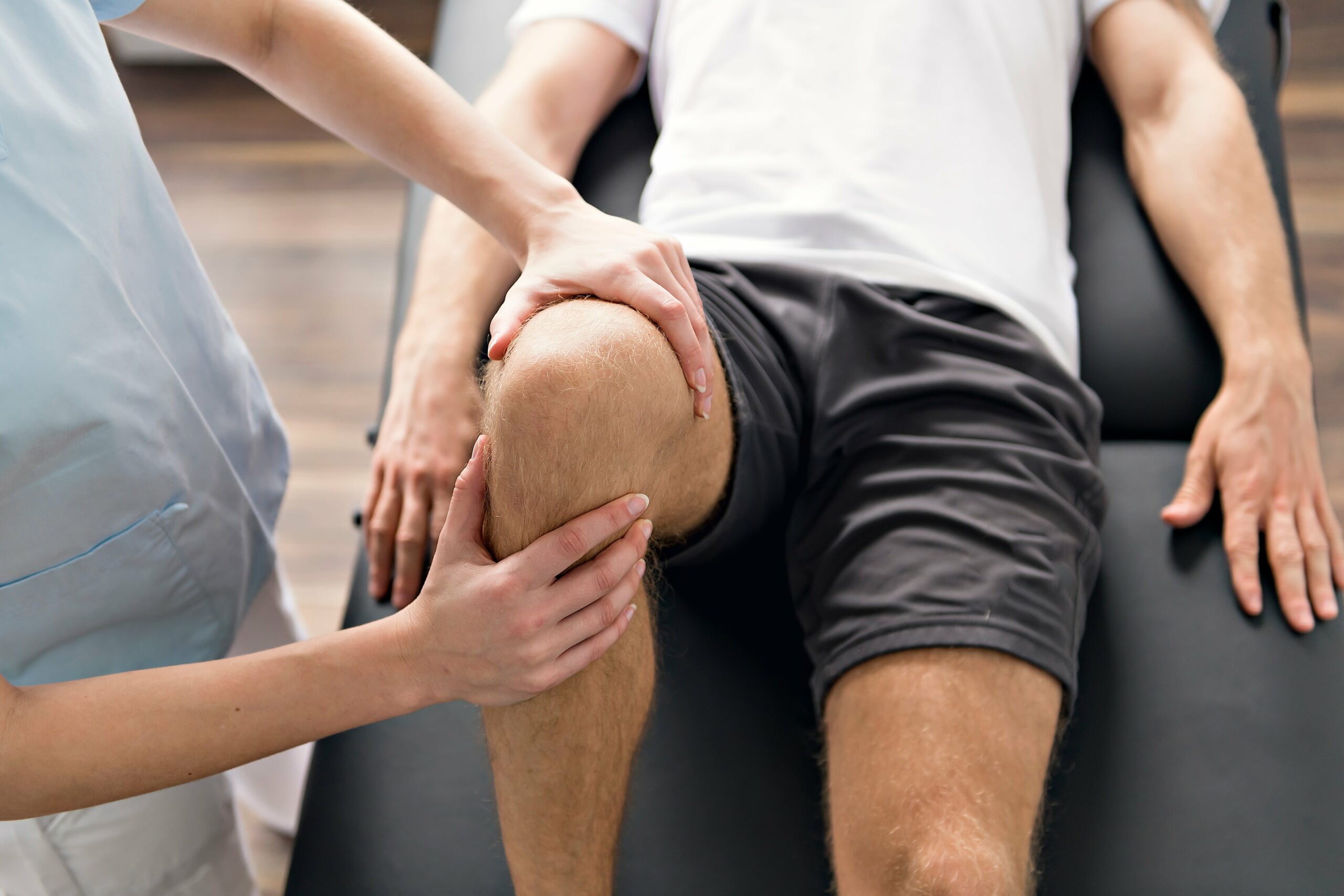Diagnosis and Treatment of Osgood-Schlatter Disease in Wake County

What is Osgood-Schlatter Disease?
Osgood-Schlatter disease is a condition that causes pain and swelling in one or both knees. The pain and swelling occur at the tibial tuberosity, where the patellar tendon is attached to the tibia. The disease most commonly affects young athletes who are still growing and who engage in activities such as repetitive running and jumping. In most cases, conservative interventions are effective treatments for Osgood-Schlatter disease. Surgical intervention is rarely necessary.

Causes of Osgood-Schlatter Disease
Osgood-Schlatter disease is caused by repetitive pulling of the patellar tendon at the tibial tuberosity (the point where the patellar tendon attaches to the shin bone). The disease commonly affects children during their pre-adolescent growth spurt (around 10-14 years old). Since bones usually grow more rapidly at this point in development, muscles and tendons may become tight, causing the pulling on the patellar tendon that is characteristic of this disease. Tight quadriceps, hamstring muscles, and sports or activities that require frequent running or jumping are also causes of this disease.
Osgood-Schlatter Disease Risk Factors
Risk factors for Osgood-Schlatter disease include being an adolescent who participates in sports or activities requiring repetitive running or jumping; being a boy, since boys are more likely to suffer from Osgood-Schlatter disease than girls; suffering a past knee injury; current or recent growth spurt; and inflexibility of the muscles.
Symptoms of Osgood-Schlatter Disease
A patient with Osgood-Schlatter disease may experience a painful bump just below the knee where the patella attaches to the top of the shin bone, which is called the tibial tuberosity. The patient may notice tenderness in this area, along with swelling. The patient may also experience a limp following athletic activities. Core symptoms of Osgood-Schlatter disease include:
- Painful bump just below the knee
- Swelling below the knee
- Pain and tenderness below the knee
- Limping
- Tight quads and/or hamstrings
How is Osgood-Schlatter Disease Diagnosed?
When you come to see us at Raleigh Orthopaedic, your doctor will ask you about your symptoms and medical history. A physical examination will be performed, including the application of pressure to the point below the knee (this will be painful in a patient with Osgood-Schlatter). The doctor may also ask the patient to perform a series of physical tests such as walking, jumping, running, or squatting in order to assess pain. An X-ray may be ordered to help confirm the diagnosis and ensure that there is no other cause of the knee pain.

Treatment Options for Osgood-Schlatter Disease at Raleigh Orthopaedic
In most cases of Osgood-Schlatter disease, the patient’s symptoms can be managed with nonsurgical treatments. Often, the pain will resolve without intervention after the completion of a growth spurt. Pain and swelling management are usually the only courses of treatment needed in the meantime. Conservative treatment options for Osgood-Schlatter disease include:
- Icing the knee
- Over-the-counter pain relievers
- Stretching
- Physical therapy
- Refraining from activities that aggravate the knee
- Wearing a patellar tendon strap
- Wearing knee pads during activities in which the painful area may strike the ground or other hard surfaces
Very rarely, surgery may be necessary in cases of Osgood-Schlatter disease where pain does not resolve following the completion of growth spurts. Surgery is not performed on children who have not yet finished growing.

Osgood-Schlatter Disease Recovery Time
Recovery from Osgood-Schlatter disease depends on the patient. Symptoms usually resolve following the completion of the growth spurt. If you or your child is experiencing persistent knee symptoms that interfere with daily activities, we encourage you to come see us at Raleigh Orthopaedic. One of our knee specialists will be happy to work with you and provide personalized treatment options.
How Can I Prevent Osgood-Schlatter Disease?
Reducing the risk of developing or worsening Osgood-Schlatter disease may be accomplished by doing the following:
- Maintaining good strength and flexibility in your legs
- Participating in sports that are lower-impact, like swimming as opposed to high-impact sports like soccer or football
- Wearing appropriate footwear that will absorb the stress of running and jumping
- Wearing a patellar tendon knee strap
- Making sure to cool down, rest, and ice your knees after exercising to keep the condition from worsening

Expert Knee Care at Raleigh Orthopaedic
For over 100 years, we have served patients in Wake County and provided the highest level of orthopedic care. Whether you are seeking urgent orthopedic care or help with a chronic knee condition, our team is here to support you. If you wish to set up an appointment at one of our convenient locations, give us a call today or book online.














